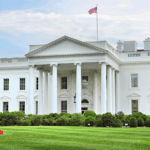Across Washington state, the union for teachers, WEA, has been prodding teachers to strike and to demand enormous pay raises.
While it’s true the Washington State Supreme Court in McCleary v. State of Washington did address the wages of teachers, the ruling didn’t say all teachers entitled a pay raise. The court instead said state funding – not levies – should provide the entire salary of basic education teachers.
The reasoning was that wages should be equitable across the state rather than based on varying taxing capacity. Likewise, the court wanted the funding for the state’s paramount duty to come from the state and not the capricious local levies that sometimes fail to pass.
The legislative solution addresses both of these issues. The McCleary solution:
- Increased allocation for teacher salary 15 percent from $55,705 to $65,216 for 2018-19 according to section 503 of the state budget for 2017-19.
- Increased state property taxes by roughly $0.94 per $1,000 of property value to provide funds for this increase (further explained here).
- Decreased school property tax levies to no more than $1.50 per $1,000 of property value beginning Jan. 1, 2019.
- Prohibited the use of lower local “Enrichment Levies” for general teacher salary effective September 1, 2019. Only wage enhancements for documented responsibilities, duties, responsibilities or time are allowed.
The new law is very clear that in 2019 local levies will decrease to offset the state increase in property taxes. Likewise, levy-funded salary enhancements will no longer be legal as the state funding increase for salaries is rolled out. The state’s regional cost-of-living enhancement for teacher salaries in expensive regions assured nobody would be paid less than before.
The legislative solution was sensible, and it was affirmed by the Supreme Court. Property-poor districts were able to offer a higher wage while property-rich districts could end the snowballing use of finite levies for union-sought wage increases. They would be required to backfill levy-funded salary enhancements with the new state money.
But the union experts hid this fact from their members. Instead, they came to the absurd conclusion that districts that didn’t immediately give all teachers a 15 percent raise were stealing money.
In districts required to backfill their levy-funded higher salaries with the new state funds, the teachers were angered by the districts’ claims that everyone’s paycheck might not increase due to the end of using levies for salary.
Strikes ensued.
Dozens of cowed districts ignored the law prohibiting levy funds for mere salary increases and spent heavily from their levies and reserve funds to settle with the union hostage takers and restore services to families.
In the Tacoma school district, a glimpse of the master plan of the union may have been provided.
Perhaps the union’s plan all along was to get districts to ignore the levy-funded salary prohibition, make imprudent decisions and use the resulting crisis as a lobbying campaign.
Despite the court ruling that the new laws were equitable and that they properly restored wage responsibility exclusively to the state, lawmakers wrote to the Tacoma School Board practically apologizing for the new law.
In their letter legislators wrote, “. . . our energies will be focused on addressing levy capacity” and increasing various elements of state funding.
KOMO news reported “The strike ended when a 14.4 percent raise was offered. The district said it was swayed (to accept these terms) by a letter from lawmakers promising action in the next legislative session to fix the McCleary funding formulas.”
So watch for soon-to-be-insolvent districts to lock arms with the union lobbyists and to press the Legislature to “address levy capacity” with local property tax increases even though the districts’ financial injuries are self-inflicted.
Better instead for lawmakers to strengthen the prohibitions on local salary bargaining and teachers strikes to keep the union bully tactics out of local school budgeting.
Related:
- Now is the time for transparent collective bargaining
- State superintendent favors union power
- Has the legislature fixed public education? (which predicts this turn of events)
- Senate nearly fixes education funding loophole
- Open Letter to Lawmakers: Restore Sideboards on Collective Bargaining
- Teachers union bargaining to steal materials from children
- SPI Sues to End WEA’s Damage to Funding
- Superintendent Dorn Acknowledges Union Abuse of Public Interest
- Grading the teachers union contracts











